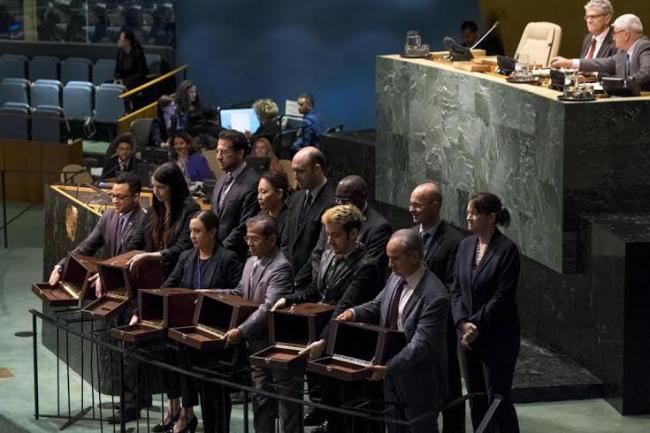16 Oct 2015, 07:35 am Print

New members Egypt, Japan, Senegal, Ukraine and Uruguay will serve until 31 December 2017.
The five overall seats available for election in 2015, distributed regionally, were: two seats for the African Group (currently held by Chad and Nigeria); one seat for the Asia-Pacific Group (currently held by Jordan); one seat for the Group of Latin American and Caribbean States (currently held by Chile); and one seat for the Eastern European Group (currently held by Lithuania).
The Western European and Others Group is contesting no seats this year, as its two seats (currently held by New Zealand and Spain) are up for election every even calendar year.
The five permanent Council members, which each wield the power of veto, are China, France, Russia, the United Kingdom and the United States. The non-permanent members that will remain on the Council until the end of 2016 are Angola, Malaysia, New Zealand, Spain and Venezuela.
Under the UN Charter, the Security Council has primary responsibility for the maintenance of international peace and security. Each of the Council’s members has one vote. Under the Charter, all UN Member States are obligated to comply with Council decisions.
The Security Council takes the lead in determining the existence of a threat to the peace or act of aggression.
The Security Council also recommends to the General Assembly the appointment of the Secretary-General and the admission of new Members to the United Nations. And, together with the General Assembly, it elects the judges of the International Court of Justice.
UN Photo/Cia Pak
- Viral Irish food bank photo sparks shocking racist attacks on Indians
- Caught on camera: Two foreigners assaulted in Israel in an alleged racial attack
- Pakistan: Parents heartbroken after court sides with man accused of kidnapping minor Christian girl
- Pakistan: Trafficked 35 years ago, Bangladesh-born woman approaches court against FIA for offloading her from flight!
- Hindu tea worker found bound and bloodied in Bangladesh garden during general elections; investigation underway





-1763561110.jpg)
